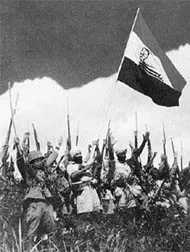Autonomy development of Bengal:

Bengal assumed a noteworthy part in the Indian autonomy development, in which progressive gatherings, for example, Anushilan Samiti and Jugantar were overwhelming. A significant number of the early defenders of the autonomy battle, and resulting pioneers in the development were Bengalis, for example, Chittaranjan Das, Khwaja Salimullah, Surendranath Banerjea, Huseyn Shaheed Suhrawardy, Netaji Subhas Chandra Bose, Titumir (Sayyid Mir Nisar Ali), Prafulla Chaki, A. K. Fazlul Huq, Maulana Abdul Hamid Khan Bhashani, Bagha Jatin, Khudiram Bose, Surya Sen, Binoy-Badal-Dinesh, Sarojini Naidu, Aurobindo Ghosh, Rashbehari Bose, and Sachindranath Sanyal.
Some of these pioneers, for example, Netaji, who was conceived, raised and taught at Cuttack in Odisha did not subscribe to the view that peaceful common rebellion was the most ideal approach to accomplish Indian Independence, and were instrumental in furnished resistance against the British power. Netaji was the prime supporter and pioneer of the Indian National Army (unmistakable from the armed force of British India) that tested British powers in a few sections of India. He was likewise the head of condition of a parallel administration, the Arzi Hukumat-e-Azad Hind. Bengal was additionally the cultivating ground for a few unmistakable progressive associations, the most remarkable of which was Anushilan Samiti. Various Bengalis passed on amid the autonomy development and many were detained in Cellular Jail, the infamous jail in Andaman.